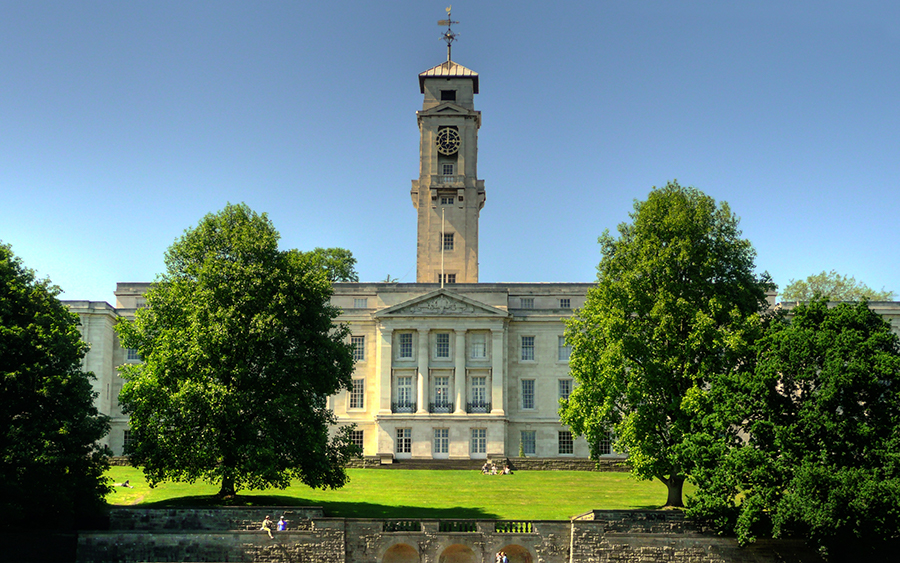Over 250 University of Nottingham (UoN) staff have signed an open letter to the university’s Vice Chancellor criticising a call for staff to volunteer for student support roles, as the university grapples with one of the highest numbers of coronavirus cases in the country.
An email sent to staff on October 7 requested volunteers for both a virtual contact centre and physical support roles in Halls of Residence, which would be undertaken in place of a volunteer’s usual academic work.
The UoN has the second-highest coronavirus case number in the country, according to the University and College Union, second only to Newcastle University.
UoN’s own published data indicate a peak of 1,530 total cases on October 9, although this number had fallen to around 1,100 by Thursday.
According to its website, the UoN contacts all students and staff who are self-isolating to offer wellbeing and “ensure that [self-isolating students and staff] know how to access our mental health, wellbeing and online fitness services while isolating”.
However, in the email sent last week, the university admitted “students are not sure where to seek support or have a question answered”.
Staff volunteering in physical roles would, according to the email, be provided with full Personal Protective Equipment (PPE) and aim to provide a “visible point of contact, offering basic information and reassurance to students”.
The virtual contact centre, which shall be running seven days a week for up to a month, has requested approximately 90 volunteers per day to work four-hour shifts. It is unknown how many staff have volunteered for the roles.
However, an open letter from exacerbated staff to UoN Vice-Chancellor, Professor Shearer West, has heavily criticised the lack of preparation which has led to request, as well as a lack of consultation over cuts to staff research time and cancellations of promotions and pay rises.
The letter, which was published only a day after the UoN request was made, has described the move as “inadequate” and “demonstrates the failure of the institution to safely bring people back to campus”.
Calling for a “significant change in direction to ensure the safety of students and staff,” the letter goes on to state, “This call for untrained volunteers demonstrates an inexcusable lack of preparedness.
“Additional staff should be recruited to provide the essential support required, rather than requesting existing staff already working over capacity to take on more.
“The lack of accountability and transparency from our leaders continues to negatively impact staff morale in already challenging times. The duty of care has been abrogated.”
Speaking exclusively to Platform, a UoN staff member, who wished to remain anonymous, said that the request reflected poor awareness of the challenges staff and students currently face.
“Staff are completely at capacity. It goes without saying that we are working extremely hard to deliver quality online teaching, and some staff are still delivering face-to-face— but we are also providing more pastoral support to students than ever.
“We do this because we care deeply about the wellbeing of our students.
“We are all doing the best we can in the context of a global pandemic that is impacting our own lives, households, and families in complex ways, and when the University issued a call for staff to deprioritise primary work and volunteer to fill what should have been designated essential roles, it really felt like staff wellbeing was not at the forefront.
“Not to mention this is certainly not the best way to offer students the support they need.”
When asked what preparations should have been made, the staff member said that whilst the past could not be changed, better communication with students and staff is needed.
They also claimed the combination of online and face-to-face teaching is failing in practice.
“Students everywhere would have benefited from greater clarity and transparency about what the campus experience would look like living with Covid.
“If they had been told that a return to campus would involve periods of isolation in halls, at least they could have made informed choices about whether they were prepared to accept that or if they preferred to do things remotely from their familial or other home.
“It is impossible to offer small group face-to-face seminars when so many students are isolating.
“It is near impossible for module convenors to manage constantly moving students between groups as students move in and out of isolation.
“It is also terribly disruptive for the students. If the decision had been made to have everything online from the start, at least both students and staff would have had a degree of certainty about what the semester would look like.”
Read the full letter from UoN staff here.
A spokesperson for University of Nottingham said: “While we are providing students with a wealth of information, we know how important it is to have someone to speak with and reassure students as they commence their studies, adapt to living in a new city, settle into their halls of residence and understand our social distancing measures.
“This is why we have asked for staff volunteers to support the contact centre as they will know our University best, and only to help out where and if their other duties allow.
“We recognise that all of our colleagues are doing incredibly busy jobs and are grateful to those who can spare the time to help.
“We would like to thank our staff who are making tremendous efforts to teach, research and support our students on- and off-campus, as well as our 35,000 students, the overwhelming majority of whom are acting responsibly and following the rules.”
By Callum Parke
Featured image: Wikimedia Commons.

